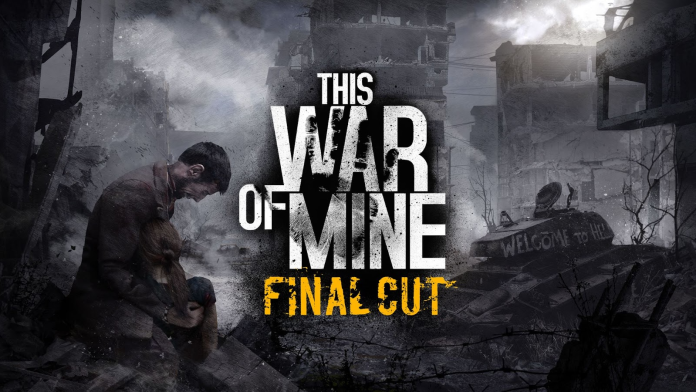In recent years, video games have transcended their role as mere entertainment to become dynamic spaces for political expression and activism. Players and developers alike use gaming platforms to voice dissent, challenge authority, and raise awareness about social issues. This shift highlights how virtual worlds can mirror real-world struggles, providing new avenues for protest and community engagement. The growing accessibility of the internet and advances in gaming technology have expanded these virtual spaces into global arenas where ideas and ideologies clash and converge, influencing not only players but also wider society. These digital environments offer a level of anonymity and safety that encourages participation from those who might otherwise be silenced, making games an increasingly vital frontier for political expression.
The evolution of games as political platforms
Historically, games have reflected cultural and political narratives, but only recently have they become explicit tools for protest. Titles such as Papers, Please and This War of Mine engage players in ethical dilemmas related to authoritarianism and conflict, encouraging empathy and critical reflection. These games blur the lines between storytelling and activism by immersing players in experiences that parallel real-world hardships, fostering a deeper understanding of complex social issues. Moreover, independent developers increasingly incorporate political themes into their work, pushing boundaries and prompting players to reconsider their perspectives. This evolution marks a significant shift from passive consumption of media to active participation in socio-political dialogue through interactive means. The growing presence of politically charged content in mainstream games also challenges the industry to reconsider its role in shaping public discourse.
Political activism in multiplayer environments

Massively multiplayer games and online communities have emerged as effective venues for political activity. In these spaces, players can coordinate protests, disseminate information, and mobilize support for various causes without geographical limitations. For example, during significant political events, players gather in virtual lobbies to discuss issues or stage in-game demonstrations, effectively transforming game servers into platforms of digital resistance. The increasing popularity of competitive games and tournaments, such as cs2 live matches, attracts diverse audiences, making these events prime opportunities for political messaging and awareness-raising. Importantly, these gatherings create a sense of solidarity among participants, turning virtual arenas into powerful spaces for collective action and social commentary that transcend traditional protest methods. The digital nature of these protests also complicates authorities’ ability to suppress dissent, adding a new dimension to activism strategies.
Among many games, the popularity of competitive shooter scenes has surged, bringing attention not only to the game itself but also to the social dynamics around it. Players following cs2 live matches often engage in discussions that transcend gameplay, touching on broader societal and political topics. This integration of political discourse into gaming communities exemplifies how the virtual world can parallel real-world activism. These discussions often spread across social media platforms, amplifying their reach and impact. The phenomenon illustrates how gaming culture and political engagement can intersect in complex and meaningful ways, influencing both the perception and practice of protest. Additionally, streamers and influencers within these communities play a critical role in shaping opinions and motivating political participation among younger audiences.
Games as tools for raising awareness and education
Beyond direct protest, games serve as powerful educational tools that promote understanding of political issues. Developers create narratives that challenge players to confront social injustices, corruption, and human rights violations through immersive storytelling. By engaging players emotionally, games can inspire critical thinking and motivate activism in real life. Educational initiatives increasingly incorporate games to teach political history and civic engagement, demonstrating the medium’s growing influence. For example, certain projects use simulations and role-playing to help learners grasp complex political systems and social challenges, making education more interactive and impactful. Titles like Democracy and Civilization allow players to experience the complexities of governance, diplomacy, and societal development, highlighting the consequences of their decisions in a safe environment. This approach not only broadens the audience for political content but also encourages active participation and informed citizenship.
The interactive nature of games allows players to experiment with decision-making and witness consequences, deepening their comprehension of political processes and ethical dilemmas. Furthermore, these games often incorporate diverse perspectives, encouraging empathy toward marginalized groups and raising awareness about systemic issues such as inequality and oppression. Non-profit organizations and educational institutions are increasingly collaborating with game developers to create content that complements traditional teaching methods. Virtual reality (VR) experiences also play a growing role by immersing players in environments that simulate real-world crises, such as refugee camps or war zones, providing a visceral understanding of human suffering and resilience. As such, games have become indispensable tools not just for entertainment, but for fostering a politically conscious and engaged generation.
The challenges and controversies of political gaming
While games offer unique platforms for protest, they also face challenges such as censorship, platform regulation, and backlash from authorities. Some governments restrict politically charged content or monitor gaming communities, limiting freedom of expression. Additionally, the anonymity and global reach of online games sometimes result in toxic behavior and misinformation. Navigating these challenges requires balancing open political discourse with responsible moderation and player safety. Moreover, the commercial nature of many gaming platforms can create conflicts of interest, as companies may prioritize profit over political expression, leading to censorship or the suppression of controversial content. These dynamics complicate the role of games as safe spaces for activism, highlighting the ongoing struggle between freedom and control in digital environments. Furthermore, players engaging in political protest within games may face real-world repercussions, raising ethical and legal concerns about digital activism.
Conclusion
Games have evolved into influential arenas for political protest and activism, allowing players to engage with social issues in innovative ways. From multiplayer protests to educational narratives, virtual spaces offer powerful tools to raise awareness and inspire change. Despite challenges, the intersection of gaming and politics continues to grow, underscoring the importance of digital platforms in contemporary political movements. As the gaming community expands, so does its potential to shape public discourse and foster global solidarity. The future promises even greater integration of activism and gaming, as technology advances and more individuals recognize the power of virtual spaces to reflect and transform real-world realities. This dynamic landscape invites ongoing exploration of how games can not only entertain but also empower voices striving for social justice and reform

